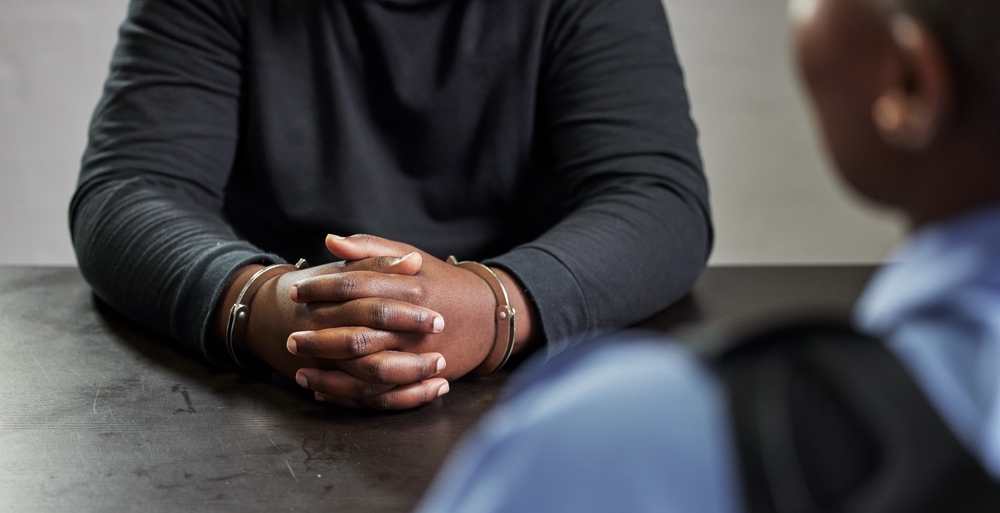Most people know the phrase “citizen’s arrest” from TV dramas or action movies. “Self-arrest,” on the other hand, sounds like something you’d only hear in a legal textbook. But both are very real, and understanding how they work in Texas can help you avoid major legal mistakes.
Whether you’ve witnessed a crime or learned you have a warrant, it’s important to know what’s legal, what’s risky, and what happens next; especially when it comes to bail. At 1st Call Bail Bonds in Dallas, we help people navigate these situations every day, and we’re breaking down what you really need to know below.
What Is a Citizen’s Arrest in Texas?
A citizen’s arrest happens when a private individual (not law enforcement) detains someone they believe has committed a crime. Yes, it’s legal under Texas law—but the rules are strict, and the risks are real.
When Is a Citizen’s Arrest Legal?
Under Texas Code of Criminal Procedure §14.01, a private citizen can arrest someone only if they personally witness a felony or a crime against the peace (like an assault or disturbance). Here’s what must be true:
- You personally saw the crime happen
- It was a felony or breach of the peace
- You used only reasonable force
- You immediately called the police to take over
If you detain someone without legal grounds, you could face serious charges yourself, including false imprisonment, assault, or even kidnapping. Plus, the person you detained could sue you in civil court.
A citizen’s arrest should never be taken lightly. It’s not a tool for chasing shoplifters or confronting strangers. It’s a last-resort action—and even then, you’re better off calling the police and letting trained professionals handle it.
What Is a Self-Arrest?
Self-arrest, or voluntary surrender, is when someone turns themselves in after finding out they have an outstanding warrant—or after committing a crime and deciding to take responsibility.
Why Would Someone Self-Arrest?
There are a few common reasons:
- They received notice of a warrant for arrest
- Their attorney advised them to turn themselves in
- They want to show cooperation and good faith
- They fear being arrested in public or at home
Turning yourself in voluntarily can help your case. Judges and prosecutors often view it as a sign of responsibility and maturity, especially when it’s done with the help of an attorney and a bail bond agent.
What Happens During a Self-Arrest?
The process is fairly straightforward:
- Contact an attorney – They can confirm the warrant and plan your surrender.
- Call a bail bondsman – At 1st Call Bail Bonds, we often prearrange everything so the booking and release happen quickly.
- Turn yourself in – You’ll go to the police station or jail, get booked, fingerprinted, and photographed.
- Post bail – If you’ve already worked with a bondsman, you may be released the same day.
If you’re worried about being taken into custody during a traffic stop or at work, self-arrest puts you in control of when and how you’re booked. It also shows the court you’re not a flight risk—something that can reduce your bail or penalties later on.
Bail After Citizen’s Arrest or Self-Arrest
Whether you were detained by a private citizen or turned yourself in, your next step is likely getting out on bail. Here’s what that means:
- A judge sets a bail amount based on the charges, your criminal history, and risk level
- You (or a loved one) can either pay the full amount in cash or use a bail bond service
- A bail bond typically costs 10% of the total bail, and we take care of the rest
- You’re released while awaiting your court date
At 1st Call Bail Bonds, we’re available 24/7 to help you post bail quickly—often within a few hours. If you plan to self-surrender, we can prearrange your bond so your time in custody is minimized.
Don’t Go Through These Situations Alone—Let 1st Call Bail Bonds Help!
Legal situations are rarely as simple as TV makes them look. A citizen’s arrest can turn into a lawsuit. A self-arrest can turn into unnecessary jail time if you don’t plan ahead.
If you’re dealing with either situation:
- Don’t act without legal advice
- Don’t risk your safety or freedom
- Call a professional bail bondsman to help you through it
At 1st Call Bail Bonds, we treat every client with respect, discretion, and urgency—whether you’re turning yourself in or helping a loved one get released.
We’re here 24/7 because when it comes to your freedom, the first call you make matters.


